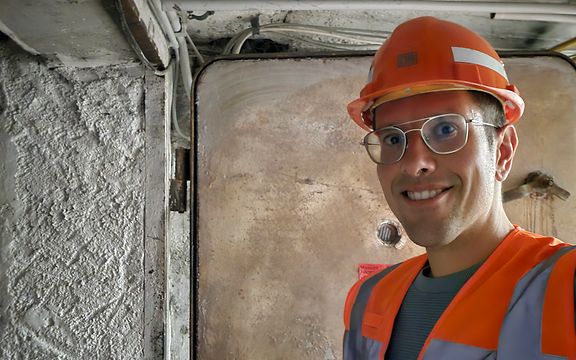Rail: Europe's lifeline for a sustainable future
To mark Europe Day on 9 May, DB Cargo is looking beyond national borders.
9 May is a very special day for Europe: on this day in 1950, France's Foreign Minister Robert Schuman proposed a common market for coal and steel. This led to the founding of the European Coal and Steel Community, from which today's European Union (EU) emerged. Europe Day has been observed since 1986 to commemorate this important day for the peaceful development of Europe. It's even celebrated as a public holiday in some European countries – reason enough for us to look beyond Germany's borders today.
Facts and figures on DB Cargo and Europe
- 20,000 freight trains cross Europe every week. That's more than 1 million freight trains per year!
- This service is provided by 2,600 locomotives, serving 4,200 private sidings across Europe.
- The locomotives pull around 90,000 freight wagons.
- Their trips avoid around 7 million tonnes of CO2e emissions and replace 22 million HGV journeys per year.
Germany: the heart of Europe
Rail has been connecting countries and people throughout Europe for generations, and Deutsche Bahn and DB Cargo are committed to working for a strong Europe. It's clear to us that Germany is not an island, but the heart of Europe – and not just geographically. The EU's six most important transport and freight corridors run right through Germany.
Huge logistics network as far as Asia
The German economy is export-oriented like no other, and Europe is Germany's biggest trading partner. That means German delivery and supply chains can't stop at national borders, especially when one considers that most imports to Germany arrive via the major ports in Antwerp, Rotterdam, Genoa and Venice. That's why we focus not only on road and rail but also on import and export ports. Incidentally, this huge logistics network doesn't end in Europe, it extends all the way to Asia. We combine different modes of transport with our large fleet and offer attractive services that go beyond mere transport. DB Cargo plays an important role in promoting economic integration and trade in the EU.
The longest routes of DB Cargo trains across Europe:
- Krefeld–Turkey, approximately 2,400 kilometres to the Bulgarian border (route within the EU)
- Dillingen–Craiova (Romania), 2,200 kilometres
- Vlissingen (Netherlands)–Craiova, 2,150 kilometres
Rail is indispensable for European climate protection
Just like the daily flow of goods, climate change knows no national boundaries. So shifting logistics to rail is important not only to keep Europe's economy running but also to protect the climate. This can be done best with a strong European rail network: 60% of DB Cargo's freight trains cross at least one national border, combining economic growth with climate protection. Transport by rail cuts CO2e emissions by around 80% compared to road haulage. At least one reason to celebrate not only Europe but also Europe-wide rail freight transport!







